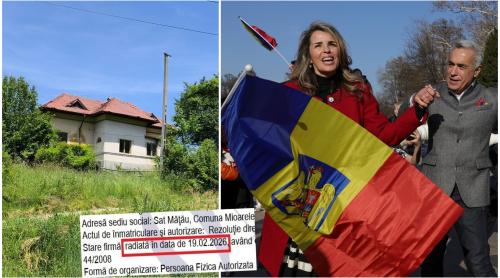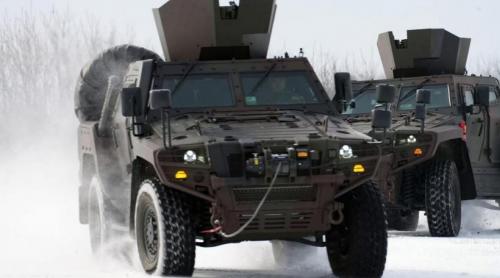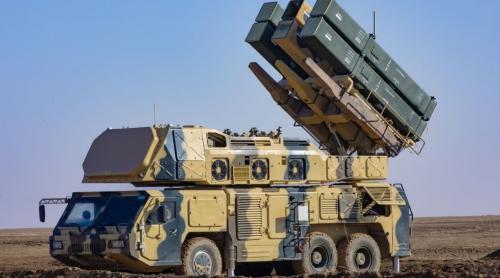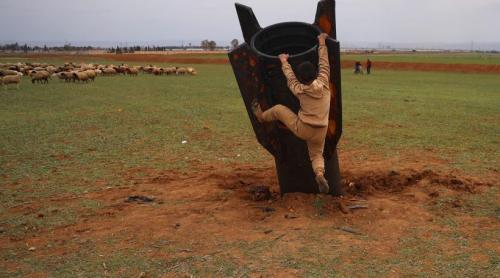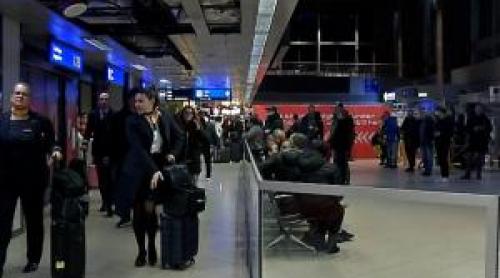
Sources close to the investigation, who wanted to remain anonymous, stated yesterday that there have been identified several people, Syrians mainly, involved in the kidnapping of the Romanian journalists.
The information has been made public yesterday by the online issue of the French daily newspaper Le Monde, which also gives some details on the kidnappers. According to the quoted source, the Iraqi police want Hakim Ziab Hamid Hussein Al-Samarai, also known as "Abu Sahar", whose real name seems to be Khaled Al-Akydyi, ever since the 22nd of May, when the Romanian journalists kidnapped in Baghdad had been released. According to a confidential report of the Romanian Information Services, which Le Monde quoted, this man, aged 49, was the connection between the kidnappers of the Romanian journalists (hostages in Baghdad since the 28th of March) and the Muadh Bin Jabal Brigades. They are supposed to have brought the Romanians in the same cellar with the French journalist Florence Aubenas and her Iraqi guide, Hussein Hanoun, on the 1st of April.THE LIST OF THE KIDNAPPERS
According to the Romanian services, the kidnapping of the three journalists, ordered from Bucharest by Omar Hayssam (arrested on the 5th of April), was made in Baghdad by a group specialized in kidnapping foreigners. Out of this group, Le Monde quotes the following: Mahmoud Khaled Al-Omar, Syrian (31) Abdel Jabbar Abbas Jasem Al-Samani (49), Ibrahim Yassin Kaathem Al-Jabouri (36), Omar Jassam Muhammad Ali Al-Salmani (35) and Yussef Munaf Muhammad Amin Al-Amin (34). The last one is Mohammad Munafâs brother, the Iraqi-American guide of the Romanian journalists and Omar Hayssamâs accomplice.THE OPERATION
After kidnapping the three Romanian journalists, the members of this group transferred them to another level, a higher one, to a network specialized in the kidnapping and "trading" of the hostages, the Muadh bin Jabal Brigades. This way, the three journalists ended up in the same cellar with Aubenas, Hanoun and FIVE IRAQI HOSTAGES, two out of which have been taken out before the releasing of the Romanian journalists and no one knows anything about them. "We dealt with three communication channels", says a source close to the Romanian crisis cell. "One channel was for the information services, another one was for the Muslim community in Romania and the third one was directly negotiating with the families of the kidnapped journalists. The communication with the secret services was the only one to allow us to go all the way", the source quoted by Le Monde adds. This operation, which could easily be the basis of an espionage novel, used leads that made the connection to the Arabian spies that used to work for the Security, the political police of the communist Romania.AUBENAS, "THE DIPLOMAT"
The French journalists, the "starâ of these days, due to her being freed and to the similitude between her case and the one of the Romanians, spoke yesterday about the Iraqi captivity. But she refused talking about the former Romanian hostages, even though they said they had been in the same cellar with her. "I was with Hussein Hanoun, my guide, I cannot speak about the Romanians. I am not saying this to hide something or because I was asked to by the secret services", she stated during the press conference in Paris, emphasizing that the situation "is delicate".REMEMBRANCE
Yesterday, she told the story of her 157 days in captivity in Iraq in that small and lightless cellar. She said she and another hostages had been beaten, because she had talked to him and that the kidnappers had introduced themselves as members of a Sunnite religious group. She said she hadnât heard about any ransom for her freeing. Aubenas said she and her guide had been kidnapped on the 5th of January in the centre of Baghdad by four armed men, while they were going to a refugee camp in Fallujah, a city the Americans attacked. She was tied up and she didnât know she was near her guide. Every day, she was allowed to speak 80 words, which usually finished while talking to her guards, who let her go outside for two or three times every day. She was called "Leila", had the code number 6 and her guide was no. 5. In the day of the freeing, "numbers 5 and 6" were taken outside and they were told: "Today, Paris". She and Hussein were freed afterwards.Basescu sees the Information Community as a Necessity
President Traian Basescu stated yesterday that, during the hostagesâ crisis, he felt the extraordinary need for an Information Community. Basescu emphasized that "the need for the initiation of an Information Community", its key being to directing the secret services in gathering information, such that they wonât get to work for a party, a group of interests or a political person.SUBORDINATION
As for subordinating the Information Community to the Government or the Presidency, Traian Basescu stated: "There is no dispute between me and the Prime Minister. This community will appear in the place it is needed the most and will be neutral from the political point of view". The President said the secret services arenât structures to take decisions, using the Omar Hayssam case as an example. This way, Basescu reminded that the RIS (Romanian Information Service) supplied a lot of information regarding Omar Hayssamâs activities. The President added that "RIS offered information", but there were others to take the decisions. "The Secret Services donât do. They just gather information", Basescu emphasized. He also said he approved the program of the secret services, which regards gathering information from outside to help the political decisions. He said they also take care of gathering information regarding the internal corruption.PROPOSITION
Yesterday, the DP (Democratic Party) deputy Romeo Raicu, the head of the External Information Service, supported the idea of initiating an information community in Romania, which should work with the secret services in the country and be led by the President. Raicu also proposed that the head of the National Security Department would coordinate this structure. With this measure, the DP deputy invokes the way in which the operative cell and the analysis group at the Cotroceni Palace worked during the crisis of the Romanian hostages.REACTIVATION
Yesterday, during a meeting with some students, Traian Basescu stated that neglecting Romaniaâs relations with the Arabian states in the past 15 years was a "political error", and he announced he started a reactivation of these relations. He said that, during the hostagesâ crisis, they realized "how bad was the abandonment of the close relations with the Arabian countries", which will be "revised" in the near future. Basescu answered that Romania "collaborated very well with France and not only".Citește pe Antena3.ro



